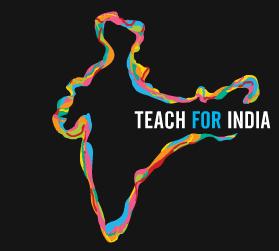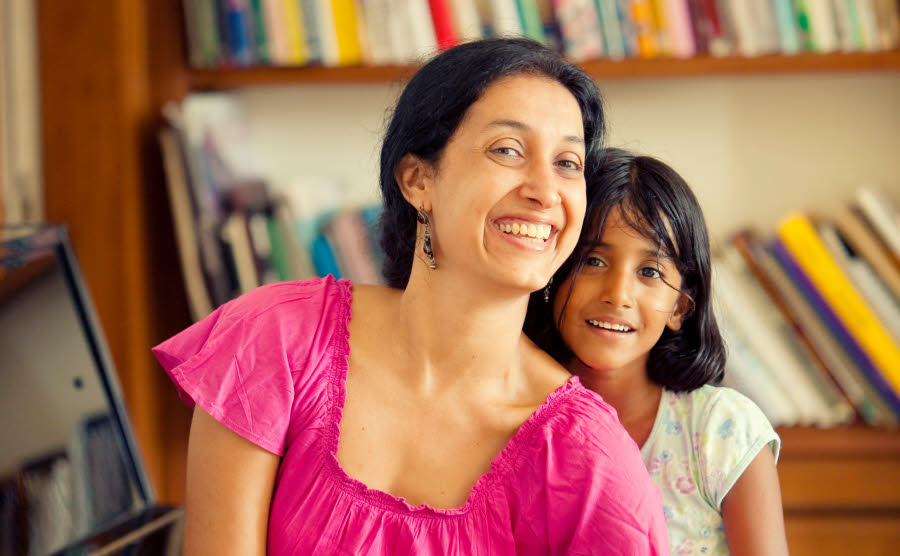Shaheen Mistri is the Chief Executive Officer of Teach For India, a nationwide movement that aims to end education inequity in India. She is also the founder of the Akanksha Foundation, a non-profit organization with a mission to impact the lives of less privileged children, enabling them to maximise their potential and change their lives. Akanksha works primarily in the field of education, addressing non formal education through the Akanksha centre model and also formal education by initiating school reform. Over the past 19 years, the organization has expanded from 15 children in one centre to over 3,500 children across Mumbai and Pune. Mistri is an Ashoka Fellow (2001), a Global Leader for Tomorrow at the World Economic Forum (2002), an Asia Society 21 Leader (2006) and serves on the boards of Ummeed, The Thermax Social Initiatives Foundation and is an advisor to the Latika Roy Foundation. Mistri has been working on the idea of Teach For India from 2007, and serves as its founding CEO and one of its founding Board Members.
I understand that your journey to counter education inequity began with Akanksha. What was it that really prompted you to start Akanksha Foundation and seriously take up the cause of ending education inequity in India?
I started Akanksha when I was 18 and in fact, didn’t start with the thought that it would become an organization. I had just moved back to India then. I had walked into a slum and started teaching. So it just started as a small college project and it slowly grew out of that. On the first day, there was a girl called Sandhya who I met in the community that I went in. She was my age but from a really different world compared to mine. My interactions with her, including the fact that I used her house as the base in the beginning to start teaching, became one of the main reasons why I started the work that I did.
The journey with Akanksha I am sure wouldn’t have been without challenges. What were some of the stumbling blocks you faced and how did you overcome them?
I think the biggest stumbling block has been in really understanding what it takes to bring about change in a child. It’s something I have been asking over and over the years. How do you really change a child’s life path and what do we really need to teach them to do? I think it’s just a constant process of working, learning from the kids and reworking the program. The other challenges were of course, of raising money, bringing up an organization, finding the right people and reaching kids. Finding spaces and getting people to give the space for us to teach was also a challenge for our concept.
Teach For India is, I believe, a sort of continuation of the initiative that you started many years back. Tell us about how TFI came about. What made you think you should start a movement like this?
TFI came about because I felt that there is a leadership gap in solving the inequity in education in our country; I felt that we had to create a next generation of leaders who are both skilled and are interested in solving the problem of educational inequity. So, the idea behind TFI was to see if we could just step back and create thousands of young leaders who are some of the best and the brightest people in our country, who will spend two years teaching in classrooms and then go on to form a powerful alumni force who will work up for education from within education as well as from outside education.
I am sure you would have interacted/ would be interacting personally with children at Akanksha and TFI schools. What do the children tell you? Have there been any incidents when what they have shared with you has moved you or made you feel that all that you have done is worth it?
There is no way I can possibly pick one or two or even ten examples because that’s really the reason that I continue to be inspired by what I do every day – there’s the constant change that I see in the kids – changes in their aspiration levels, how they think about what they can do with their lives, changes in their achievement levels, what they are actually able to do with their lives, changes in their value systems, the things that they are willing to stand up for and fight for. It’s just so many millions of these little changes.
Looking back, what are some of the important lessons you have learnt from your journey thus far?
I think I have learnt that it is important to have a lot of belief that you can achieve a seemingly impossible mission, belief in the people that you work with, belief in the children and the belief that no matter how many times they stand up and fall, they are going to get there if you work hard enough; a belief in just hard work and the fact that there really are no shortcuts in this work and it is just all about consistent hard work and sticking it out over time.
What are your views about the education system in India today?
The government has done a very good job in providing access to education to the children. Many kids have access to a school. That’s the positive. I think where we are way behind is on what actually happens in the schools –or the quality of education. That inequity is a huge problem in our country. Further, one of our biggest problems is the drop outs. Many of the children don’t even complete class ten, which is just a shame.
What’s the sort of impact that you think TFI will bring about to the Indian education scenario?
TFI will hopefully do many things. One is that it can really bring about a change in mind set; that teaching is a respectable profession and it should be something aspirational; that kids irrespective of the background can really learn to high levels.
The second point is that TFI can prove to people that what is today seen as not possible is indeed possible; which is about taking kids out from the poorest backgrounds and teaching them at the same level as children in the best private schools. I think TFI will show that over time.
The third point is that TFI will create the next generation of leaders who will work with sectors – in politics, in business, in education and social work. It will really show that to solve the problem of educational inequity, all the people from these different sectors should work together; I think you will see TFI having leaders across all these different sectors.
Talking again of the road ahead, what do you feel are the significant challenges that TFI faces as you move forward?
It’s many of the same challenges that Akanksha faces as well, including tracking what is the transformation of teaching, training and supporting our fellows to be successful, raising the money to be able to scale this across the country and keeping the quality high.
Both Akanksha and TFI are really commendable steps and efforts in the right direction. That said, it would also be interesting to know your views on the relevance of social entrepreneurship in today’s world. What do you think social entrepreneurs should aim to achieve?
I think social entrepreneurship has become too much of a buzz word today. Social entrepreneurship makes sense when there is a gap, which is not currently being filled. I think today everyone wants to be a social entrepreneur, which is actually worrying because the thought of starting something new seems exciting to many. I think social entrepreneurship becomes truly valuable when it meets a gap. Where it doesn’t, it makes sense for a young person to join someone already doing something similar as what we need is perhaps not a million small individual efforts but people working together.
You as a person and the work that you have done are an inspiration for many women including me. Tell us about the women who have inspired you.
I think it’s so many of them. Both my mother and my grandmother have been big inspiration to me. The many, many teachers who have worked with us over the years, some of them who have absolutely turned around children’s lives – they have been an inspiration too. The third would be my own two daughters – they have really taught me as to what it means to be a child and what it really takes to bring about change in a child’s life.
And finally, we would be really happy to share any message that you would like to convey to our readers.
Try to find out what your passion is, just do it, and stick with it for time. I think we get so caught up in being led by what other people think we should do that we stop listening to our own inner voice. So find out what you believe will be your significant contribution to the world and to yourself is and then just go for it!

